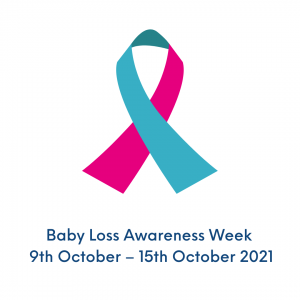Every year, the week 9th – 15th of October is dedicated to raising awareness of pregnancy and baby loss in the UK. Among women who know they are pregnant it is estimated that around 1 in 5 pregnancies will end in miscarriage, however, is it hard to know the true figure.
Whilst some employers do respond positively to such devastating news by providing supportive management and access to compassionate leave or flexible working, some employers do not and there have been calls for the law to reach further in protecting people in these circumstances from unfavourable treatment.
The law differs in rights and protections depending upon the circumstances.
After the 24th week of pregnancy
Currently, under the Equality Act 2010, a woman who suffers a stillbirth after the 24th week of pregnancy is entitled to maternity leave and any maternity pay that she qualifies for. She is legally protected against discrimination or unfavourable treatment on the grounds of pregnancy until the end of her maternity leave or until she returns to work. The partner of the child’s mother may also be entitled to paternity leave and pay if they meet the normal qualifying conditions.
Before the 24th week of pregnancy
However, women who miscarry before the 24th week of pregnancy do not have any statutory entitlement to leave and are only protected from discrimination or unfavourable treatment for a period of two weeks after the end of pregnancy. You can ask your employer to provide compassionate leave, annual leave, or a period of agreed unpaid leave if this is required.
Protections from discrimination
After the two-week protected period, a woman may be protected under sex discrimination (rather than pregnancy) if they are dismissed, disciplined, or treated unfairly because of their pregnancy, miscarriage, or related sick leave.
What if I am not well enough to work following a miscarriage?
You are entitled to take sick leave if you are not well enough to work and should follow your employer’s sickness reporting procedures. This should be treated as pregnancy-related sickness and we would advise speaking to your GP about this. Your employer must count any sick leave related to your pregnancy or miscarriage separately and must not use it against you for disciplinary or redundancy purposes for example.
What about my partner?
Partners are entitled to paternity leave and pay if they meet the normal qualifying conditions if your baby is stillborn or your baby dies after birth.
Shared parental leave
This allows parents to share the mother’s maternity leave if the mother returns to work early or cuts short her leave/pay to transfer to her partner. It does not provide any extra leave. If you have given notice before the birth of your baby to take shared parental leave and your baby is stillborn or dies after the birth, you are entitled to take the leave. However, parents are not entitled to book shared parental leave following the death of their child.
Parental bereavement leave
You may be eligible for parental bereavement leave if your child dies before they turn 18, or if you have a stillbirth after 24 weeks of pregnancy. You may qualify if you were the child’s parent, either biological, adoptive or parent of a child born to a surrogate or if you are the partner of the child’s parent. You may also be eligible for statutory pay for this period depends upon your circumstances. You can take this leave at any time from the date of the death up to 56 weeks.
What can I do if I need more time off work?
Sick Leave: If you are not well enough to return to work you must follow your employer’s normal sickness reporting procedures.
Annual Leave: You may wish to use annual leave, and this should be agreed upon with your employer in the usual way. Your normal holiday entitlement continues to accrue during maternity leave so if you have taken this leave you may have some holiday accrued and you should speak with your employer directly if you are unsure of your entitlement.
Unpaid Leave: You can ask your employer if they will agree to a further period of unpaid leave. This is not something that your employer has to agree to.
If you feel you have been treated unfairly throughout your pregnancy, maternity leave or subsequent circumstances and require advice, call us on 0333 888 1360 or email us at hello@bhayanilaw.co.uk and one of our specialists Employment Lawyers will be able to assist you.
We are in Your Corner
For advice or for a free assessment contact us today








